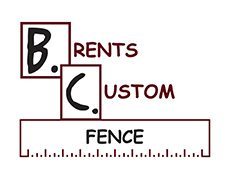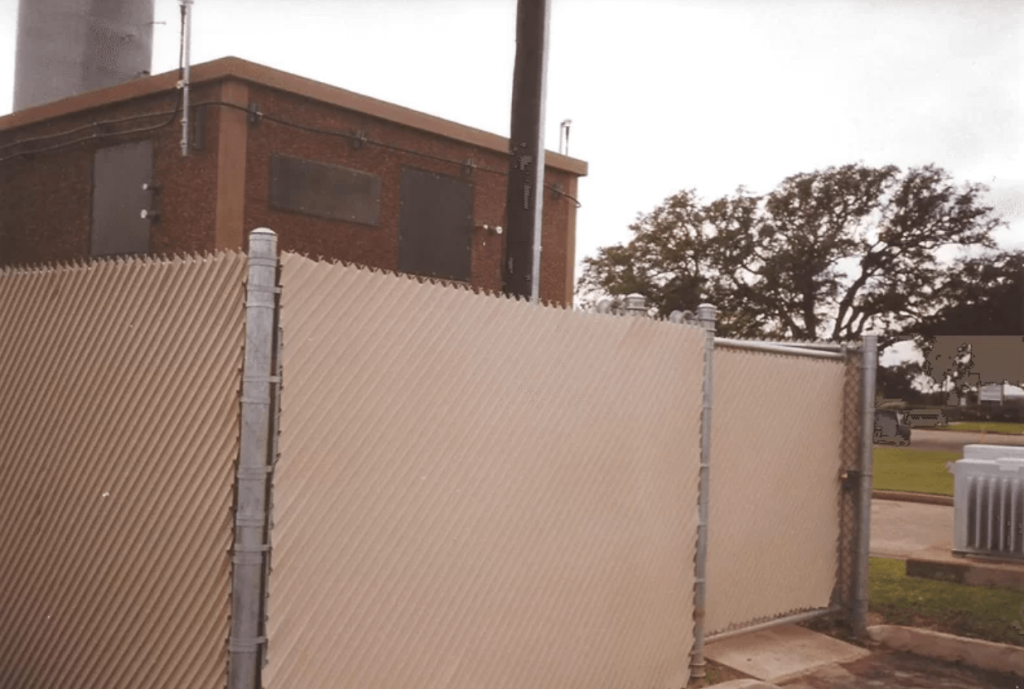When it comes to choosing the right commercial fencing for your business, one size certainly doesn’t fit all. Different industries have varying needs when it comes to security, privacy, aesthetics, and safety. Whether you’re running a warehouse, a school, or a commercial property, selecting the appropriate fencing is critical for keeping your premises secure, attractive, and compliant with industry standards. But how do you know which fencing is right for your business when you’re looking at so many options? In this article, we’ll guide you through the decision-making process so you can make an informed choice about the fencing that best suits your industry’s unique needs.
The Importance of Industry-Specific Fencing
The type of commercial fence you choose for your business says a lot about your company, both in terms of functionality and aesthetics. A retail store might prioritize an inviting and professional appearance with ornamental fencing, while an industrial facility might prioritize strong security features with durable commercial fences.
Selecting the right fencing can provide multiple benefits, such as:
- Enhanced security: Protect your business from theft and vandalism.
- Privacy: Maintain confidentiality for sensitive operations.
- Curb appeal: Boost your property’s visual appeal.
- Compliance: Ensure that your fencing meets local regulations and industry standards.
Not all fencing is created equal, and different industries have different priorities. Let’s take a deeper look at how to assess your needs.
Understanding Your Industry’s Unique Fencing Requirements
Before diving into the various types of fencing solutions available, you need to evaluate your specific requirements. Here are some key questions to help guide your decision:
1. What is the primary function of your fence?
- Security: Are you trying to protect valuable equipment or prevent unauthorized entry?
- Aesthetics: Does the fence need to complement the look of your business or building?
- Privacy: Do you need to restrict visibility into your property?
- Safety: Are there safety hazards on your premises that require a barrier?
2. What are the local regulations?
Different regions have specific zoning laws and regulations concerning commercial fencing. Check with local authorities to make sure that your fencing choice complies with height, material, and design requirements.
3. What is your budget?
Fencing is an investment, and the cost varies greatly depending on the materials and installation from the fence company. Consider the long-term maintenance costs as well—some materials, while more expensive upfront, may save you money in the long run due to durability and low maintenance.
4. How important is appearance to your brand?
For businesses like hotels, schools, or retail stores, the appearance of your fence panels can play a big role in projecting a certain image. An industrial site, on the other hand, may prioritize durability and strength over looks.
Popular Fencing Types and Materials for Commercial Use
Once you’ve assessed your needs, it’s time to consider the different types of commercial property fencing ideas available. Here’s an overview of the most common options:
1. Chain Link Fencing
Best for: Warehouses, industrial sites, and schools
Chain link fencing is a versatile and cost-effective option, commonly used in settings where security is the top priority. While it doesn’t provide much in the way of privacy, chain link fences are durable, low maintenance, and can be paired with additional security features like barbed wire or privacy slats.
2. Ornamental Iron Fencing
Best for: Office complexes, parks, and high-end retail stores
Ornamental iron fences offer a blend of security and aesthetics. They are sturdy, long-lasting, and provide a polished, elegant look. While they can be on the pricier side, ornamental iron fences are often chosen for their decorative appeal, making them ideal for businesses that want to convey professionalism and sophistication.
3. Vinyl Fencing
Best for: Offices, schools, and residential complexes
Vinyl fencing is a great option for businesses that need a combination of privacy, durability, and low maintenance. It’s resistant to weather, won’t rot or rust, and comes in a variety of styles to match your business’s aesthetic. Vinyl is especially popular for properties that require an upscale look without the hefty price tag.
4. Wood Fencing
Best for: Restaurants, hotels, and outdoor recreational areas
Wood fencing provides a classic, natural appearance that works well for businesses focused on aesthetics, like restaurants and hotels. However, wood fencing requires regular maintenance to prevent decay, especially in regions with harsh weather conditions.
5. Aluminum Fencing
Best for: Office buildings, apartments, and commercial parks
Aluminum fencing is lightweight, resistant to corrosion, and relatively easy to install. It’s also available in various designs and colors, making it a good fit for businesses that need both security and curb appeal.
6. Electric Fencing
Best for: High-security facilities and agricultural industries
For businesses that require the utmost security, such as warehouses with high-value goods or remote agricultural operations, electric fencing can be an effective solution. While it may not offer much in terms of aesthetics, it acts as a powerful deterrent against unauthorized access.
Essential Factors to Consider When Selecting Commercial Fencing
While material and type are important, other factors, such as the intended enclosure and local regulations, will play a role in determining the best fencing for your business.
1. Security Needs
What level of security does your property require? For high-security areas, fencing with reinforced strength, like chain link with barbed wire fence or electric fences, may be necessary. Lower-security areas might do well with decorative fencing that still serves as a barrier.
2. Durability
How long do you expect your fence to last? Consider the environment in which your fence will be installed. For example, areas with heavy rainfall might require materials like vinyl or aluminum, which are resistant to rust and decay in any fencing solution.
3. Maintenance
Some fences require frequent upkeep (like wood), while others (like vinyl and chain link) need minimal maintenance. Factor in the long-term costs of upkeep when choosing your fence.
4. Aesthetic Appeal
Does your fence need to blend in with the surroundings or make a statement? Businesses that depend on customer foot traffic may prioritize fences that are visually appealing and complement the building’s architecture.
5. Height and Accessibility
How high does your fence need to be? Higher fences offer more security, but they may not always be allowed by local zoning laws. Additionally, consider gates and entry points—how easily can people access your property if needed?
Industry-Specific Fencing Solutions for Enhanced Security and Functionality
Different industries have different fencing needs. Here are a few recommendations based on industry-specific requirements:
1. Retail
Retail businesses often require fencing that balances security with a welcoming appearance, making picket fences a popular choice. Ornamental iron or vinyl fencing can provide an attractive barrier that still offers protection.
2. Industrial & Warehousing
For industrial sites, security is typically the top priority. Durable commercial fences like chain link, especially when paired with additional security features like barbed wire or CCTV, are ideal for safeguarding your property.
3. Education
Schools often need a combination of security and aesthetics, as well as safety for children. Vinyl or ornamental fencing is a good option, providing a secure perimeter without creating an intimidating environment.
4. Hospitality
Hotels, restaurants, and resorts often prioritize aesthetics, but privacy is also a concern. Wood or vinyl fencing can provide both beauty and a sense of seclusion for guests.
5. Agriculture
For farms and agricultural industries, security and animal containment are key concerns. Electric fencing or durable, tall chain link fencing can provide the protection and control needed for livestock and crops.
Choosing a Reliable Fencing Contractor
Once you’ve determined the type of fencing that’s right for your business, the next step is finding a reputable fence contractor. A good contractor can ensure that your fence is installed correctly and adheres to all local regulations. Here’s what to look for in a reliable fencing contractor:
- Experience: Choose a contractor with experience in commercial fencing installation.
- Reputation: Look for reviews and testimonials from past clients to gauge the contractor’s quality of work.
- Warranty and Maintenance Services: Does the contractor offer a warranty on materials and installation? What kind of maintenance services do they provide?
- Clear Communication: A reliable contractor will offer transparent pricing and clear timelines, keeping you informed throughout the process.
Conclusion: Make the Right Choice for Your Industry
Choosing the right commercial fencing can enhance security, privacy, and curb appeal for your business. By assessing your industry’s specific needs and selecting the appropriate materials, you’ll be able to create a safer and more professional environment. Whether you prioritize security fencing, aesthetics, or durability, the right fence will provide long-term benefits for your business. Don’t leave such a significant decision to chance—consult with fencing experts to evaluate your requirements and explore the best solutions for your industry.
FAQs
What type of fence is best for high-security areas?
Chain link fencing with barbed wire or electric fencing provides the highest level of security for areas that require maximum protection.
Which commercial fences offer the best curb appeal?
Ornamental iron fencing and vinyl fencing offer both aesthetic appeal and durability, ideal for businesses that want to impress visitors.
What fence is ideal for retail businesses?
Ornamental iron or vinyl fencing is perfect for retail businesses, balancing security with an attractive appearance.
How can I choose the right commercial fence for my business?
Consider your security needs, budget, aesthetic preferences, and local regulations to choose a fence that meets your business’s unique requirements.
How do I ensure my fence complies with local regulations?
Check with local authorities for height, material, and design regulations, or consult with a professional fencing contractor to ensure compliance.

